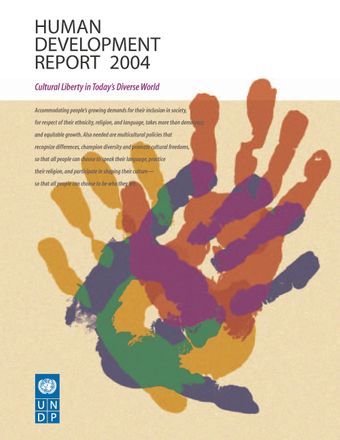- Home
- Books
- Human Development Report 2004
- Chapter
Building multicultural democracies

- Author: United Nations Development Programme
- Main Title: Human Development Report 2004 , pp 47-72
- Publication Date: December 2004
- DOI: https://doi.org/10.18356/a5ab15cd-en
- Language: English
Chapter 2 chronicles the widespread suppression of cultural liberty and the discrimination based on cultural identity—ethnic, religious and linguistic. How can states be more inclusive? Democracy, equitable development and state cohesion are essential. But also needed are multicultural policies that explicitly recognize cultural differences. But such policies are resisted because ruling elites want to keep their power, and so they play on the flawed assumptions of the “myths” detailed in chapter 2. And these policies are challenged for being undemocratic and inequitable. This chapter argues that multicultural policies are not only desirable but also feasible and necessary. That individuals can have multiple and complementary identities. That cultures, far from fixed, are constantly evolving. And that equitable outcomes can be achieved by recognizing cultural differences.
© United Nations
ISBN (PDF):
9789210576932
Book DOI:
https://doi.org/10.18356/68b83600-en
Related Subject(s):
Economic and Social Development
Sustainable Development Goals:
-
From This Site
/content/books/9789210576932c006dcterms_title,dcterms_subject,pub_keyword-contentType:Journal -contentType:Contributor -contentType:Concept -contentType:Institution105
/content/books/9789210576932c006
dcterms_title,dcterms_subject,pub_keyword
-contentType:Journal -contentType:Contributor -contentType:Concept -contentType:Institution
10
5



